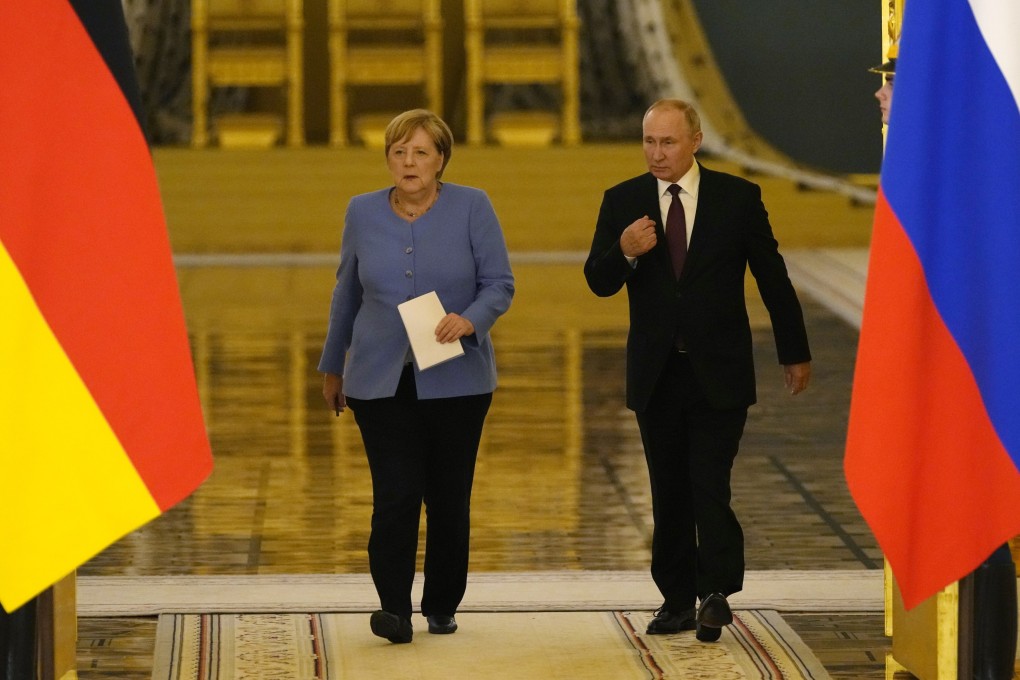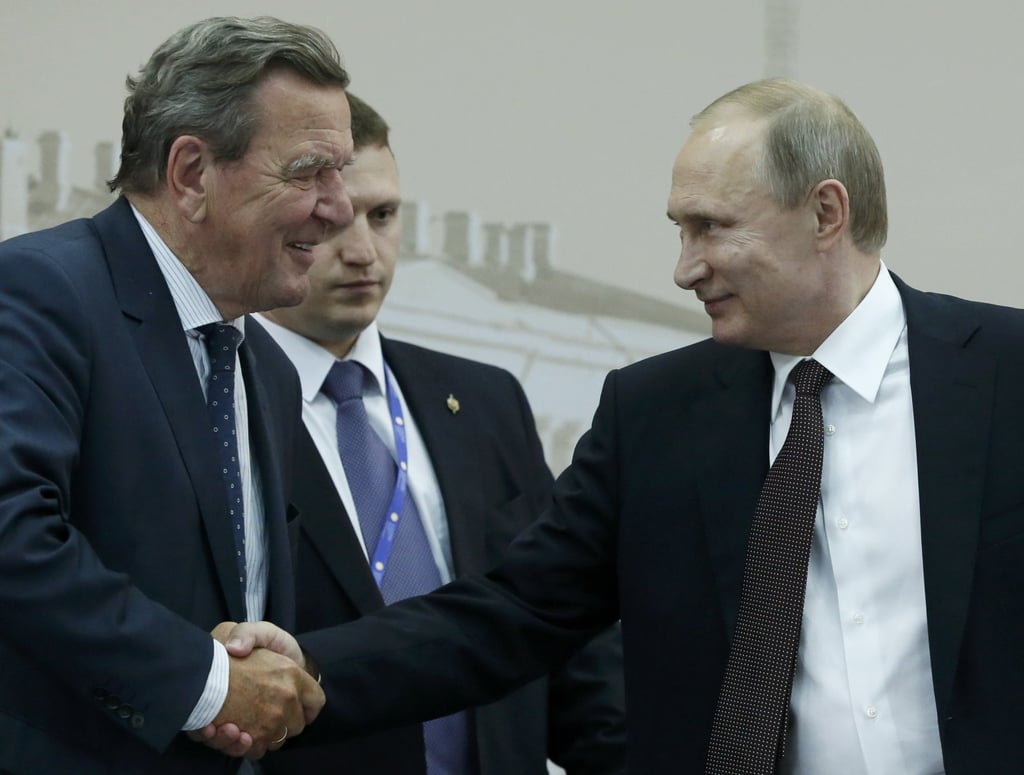Advertisement
Opinion | Germany’s U-turn on Russia underlines its failed policy of appeasement
- For decades, German leaders failed to acknowledge Putin’s ambitions, even when presented with evidence of it in Russian aggression in Georgia and Crimea
- It took a war in Ukraine and a different leadership for Germany to finally wake up
Reading Time:3 minutes
Why you can trust SCMP
15

The German approach of dealing with Russia, with its perilous naivety of relying on dialogue, appeasement and cooperation, has failed. Two previous chancellors, Gerhard Schröder and Angela Merkel, were not inclined to face the reality that Vladimir Putin’s goal was never peaceful coexistence but aggression and territorial expansion.
Advertisement
More than ever, a paradigm shift is a sine qua non.
It’s the year 2001. Chancellor Schröder has invited his friend Putin to give a speech in the Bundestag. Standing ovations followed, and the German-Russian friendship seemed set in stone.
Perhaps it was Putin’s aura or his impeccable German, but almost no one seemed to acknowledge the core message of his speech, which sought a reshuffling of the European order, for Europe to quasi-shift its focus from Washington to Moscow.

In any case, when Merkel took office in 2005, German-Russian relations were considered comfortable: Russia was a G8 member, the Nato-Russia Council was operating and Moscow was negotiating a cooperation agreement with the European Union.
Advertisement

Advertisement
